The 1980s were a golden age for teen comedies, a decade filled with coming-of-age stories, high school dramas, and quirky tales of self-discovery. Among these films stands Teen Wolf, an entry that adds fur to the allegory of puberty and the trials and tribulations of being a teenager.
If you’ve ever seen a teen comedy before not much will surprise you in Teen Wolf, aside from the supernatural element the “plot” checks off all the required boxes. Scott Howard (Michael J. Fox) is your average 1980s high school nobody. He’s not particularly cool, athletic, or confident—just a regular kid trying to make it through life at Beacon Town High. His biggest problems are unrequited love for the popular girl Pamela (Lorie Griffin), getting picked on by her meathead boyfriend Mick (Mark Arnold), and being the least valuable player on the school’s woeful basketball team, the Beavers.
Not Hoop Dreams, more like Hoop Nightmares.
Life’s not exactly a slam dunk for Scott, but things take a strange turn one night when he starts noticing some... unusual changes. He’s sprouting hair in places he didn’t expect (and a lot of it), his senses are sharper, and his temper is harder to control. At first, he thinks it’s just puberty kicking in with a vengeance, but during a heated moment at home, Scott transforms into a full-blown werewolf right in front of his dad, Harold (James Hampton), who, by the way, is also a werewolf. Surprise, Scott—it runs in the family!
“Well, son, turns out your mother was a bitch.”
At first, Scott is horrified. How is he supposed to navigate high school as a teenage werewolf? But soon, he discovers that being part wolf has its perks. His newfound abilities—super strength, agility, and an unnatural knack for basketball—quickly turn him from benchwarmer to school legend. The once-mediocre Beavers become an unstoppable force with Scott (or "The Wolf") leading the charge, and he goes from overlooked underdog to the most popular guy in town. With his popularity skyrocketing, Scott’s life takes a major turn. His best friend Stiles (Jerry Levine), the ultimate 80s hustler, sees a golden opportunity to cash in on Scott’s wolfy fame, selling t-shirts, hosting wild parties, and turning Scott into a walking brand. Meanwhile, the girl-next-door Boof (Susan Ursitti) patiently waits for Scott to notice her while Pamela, the girl of his dreams, finally gives him the time of day—because, well, who wouldn’t want to date a werewolf superstar?
Is this Romance or Call of the Wild?
But all that glitters isn’t gold. As Scott gets swept up in his new identity, he starts losing sight of who he really is. His ego grows as big as his fur coat, his teammates resent him hogging the spotlight, and he distances himself from the people who truly care about him. Even his dad warns him about the dangers of letting "The Wolf" take over. The climax comes down to the championship basketball game, where Scott faces a choice: rely on his wolf powers to guarantee victory or play as himself—flaws, nerves, and all. What follows is a classic underdog moment filled with 80s music, slow-motion shots, and a satisfying moral about staying true to yourself. The film concludes with Scott deciding to play the big game as himself and not “The Wolf” and after a rousing speech to his teammates, where he tells them, "Look, this is the championship. Now, it doesn't matter how we got here, we're here, and if we are gonna win, we have to pull it off ourselves. You don't need the wolf." Really? I think it actually does matter how they got there. Did he forget that his team sucks ass and that the only reason they've won any games at all was because he turned into a werewolf?
"Wait a minute, we have no talent whatsoever. How did we win?"
Stray Observations:
• Michael J. Fox is not the first “Teen Wolf” that honour goes to Michael Landon in the 1957 "horror classic" I Was a Teenage Werewolf.
• Scott Howard's house was located on the same block as 1955 George McFly's and Lorraine Baines' houses from Back to the Future.
• A kid blowing a dog whistle causes Scott incredible pain but seems to have no effect on his werewolf dad, who is standing right behind him.
• I know this is a silly teen comedy, but I’m surprised that none of the other schools complained about a werewolf playing on a high school basketball team. He’s basically playing with the supernatural equivalent of steroids.
• The hero is blind to the fact that his female best friend is attractive and into him. I must say, this film will let no teen movie cliché be left untouched.
• Scott, in werewolf form, has sex with Pamela, yet the word “bestiality” is never brought up. I guess that would have gotten the film an “R” rating.
• This film is about a basketball-playing werewolf, but it’s clear that director Rod Daniel has no idea how the game is played, as characters break pretty much every rule of the game, constantly.
• His dad gives him the “With great power comes great responsibility,” but he never once decides to use his werewolf power to fight crime.
"Is there even crime in this town?"
Directed by Rod Daniel, this is a film that thrives on charm and nostalgia but stumbles when subjected to any sort of critical scrutiny. Where it succeeds in being lighthearted and entertaining, sadly, it falls quite short in the narrative depth and character development. The script by Jeph Loeb and Matthew Weisman barely scratches the surface of Scott’s werewolf identity. The film sidesteps any exploration of what it means to balance human and wolfish instincts in favour of goofy gags and sports montages. Additionally, the film’s portrayal of Scott’s werewolf abilities raises questions that go unanswered. Why does everyone so easily accept a literal werewolf playing high school basketball? Why is the transformation never shown to have a darker or more dangerous side? These oversights rob the story of tension and credibility, even within its fantastical premise.
This is a portrait of teen angst.
The portrayal of high school life and relationships is often cartoonish to a fault, with the supporting cast mostly reduced to stereotypes. We get Stiles as the wacky best friend, Pamela as the unattainable love interest, and Boof as the girl-next-door archetype. Not breaking any new ground there. Then there is Coach Finstock (Jay Tarses), whose character leans too heavily on slapstick humour – though calling what he provides "humour" may be a little too generous – while others, like the antagonistic Mick, are one-dimensional to the point of parody. The reliance on physical comedy and groan-worthy dialogue at times undermines the film’s emotional beats. Though, to be fair, can an audience expect more from a movie about a basketball-playing lycanthrope?
"Frankly, my dear, I don't give a damn."
It’s safe to say the film's success has more to do with Michael J. Fox’s performance than anything else in this movie. Coming off the popularity of his series Family Ties, and his breakout role as Marty McFly in Back to the Future, Fox brought his signature charm and relatability to Teen Wolf. His portrayal of Scott Howard captures the awkwardness and vulnerability of adolescence, making his transformation into the confident and athletic werewolf both humorous and endearing. It is Fox’s comedic timing and ability to balance the fantastical elements of the story with grounded emotion that anchors the film, elevating it beyond its otherwise campy premise.
Note: For a movie about a werewolf, the transformation scenes are shockingly unimpressive. The makeup and effects are minimal, leaving Scott looking more like a hairy basketball player than a creature of legend.
Fox’s inestimable talent aside, what sets Teen Wolf apart is its unabashed embrace of camp with the werewolf transformation scenes created to be more amusing than frightening – this film never once tries to be An American Werewolf in London or The Howling – and the absurdity reaches its peak during moments like Scott’s van-surfing antics, set to the upbeat track "Surfing U.S.A.," a sequence that perfectly encapsulates the film’s mix of humour and ridiculousness. Unfortunately, the movie glosses over the ethical implications of Scott using his werewolf powers to dominate the basketball court. There’s little introspection or accountability, which leaves the moral centre of the film feeling muddled.
Who needs a moral centre when we have stuff like this?
In conclusion, Teen Wolf is undeniably fun but also undeniably flawed. It coasts on Michael J. Fox’s charm and the quirky premise but fails to deliver a compelling story or meaningful character arcs. And while it has earned a place in pop culture history as an '80s oddity, it’s more of a guilty pleasure than a genuinely great movie. For all its howls, this film ultimately lacks bite.
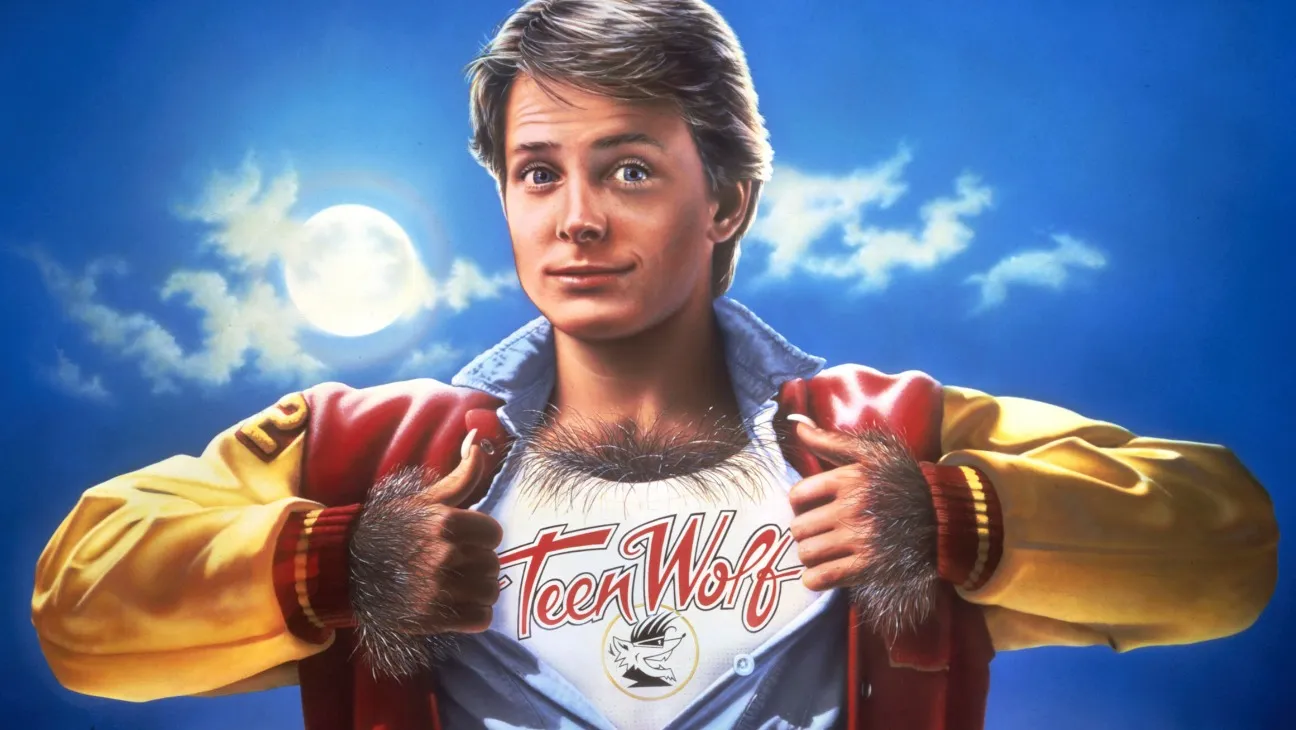
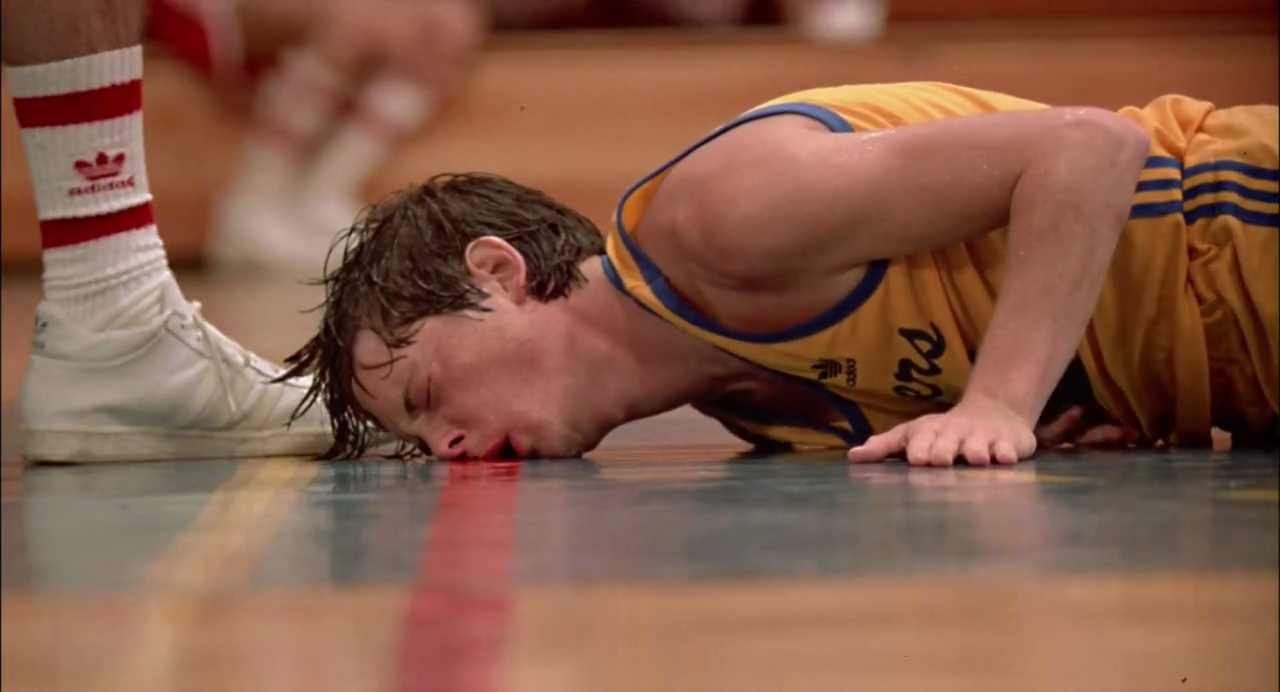
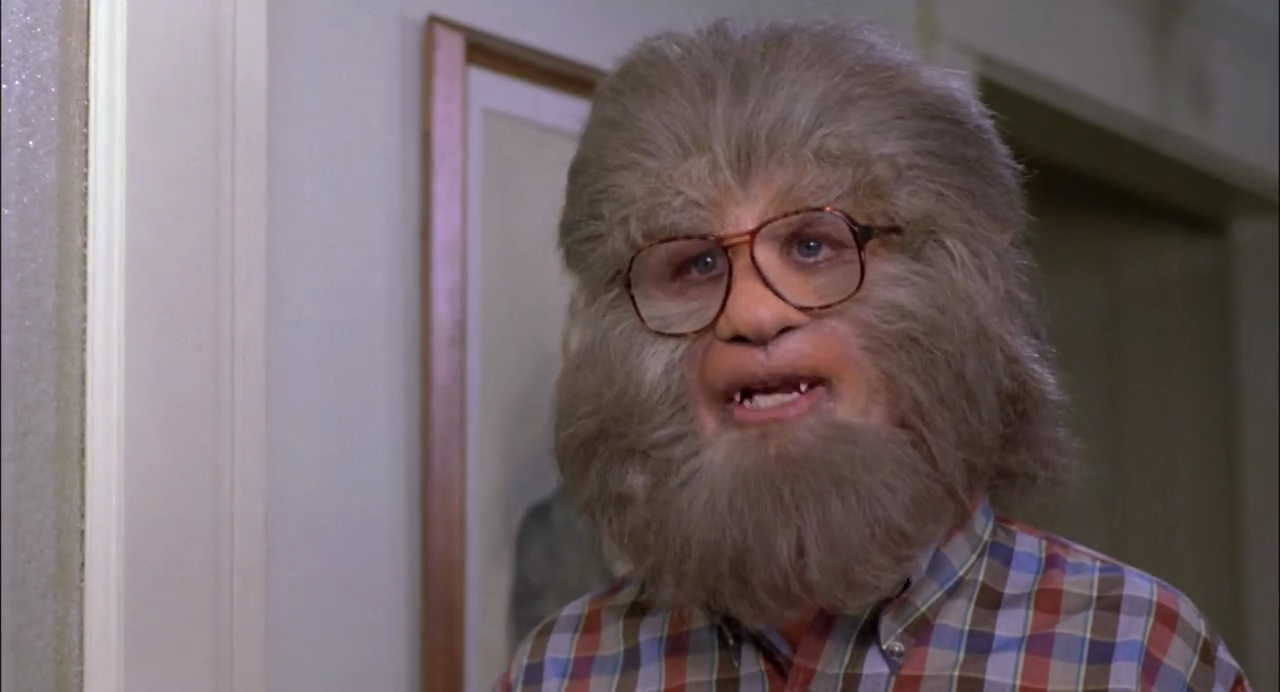
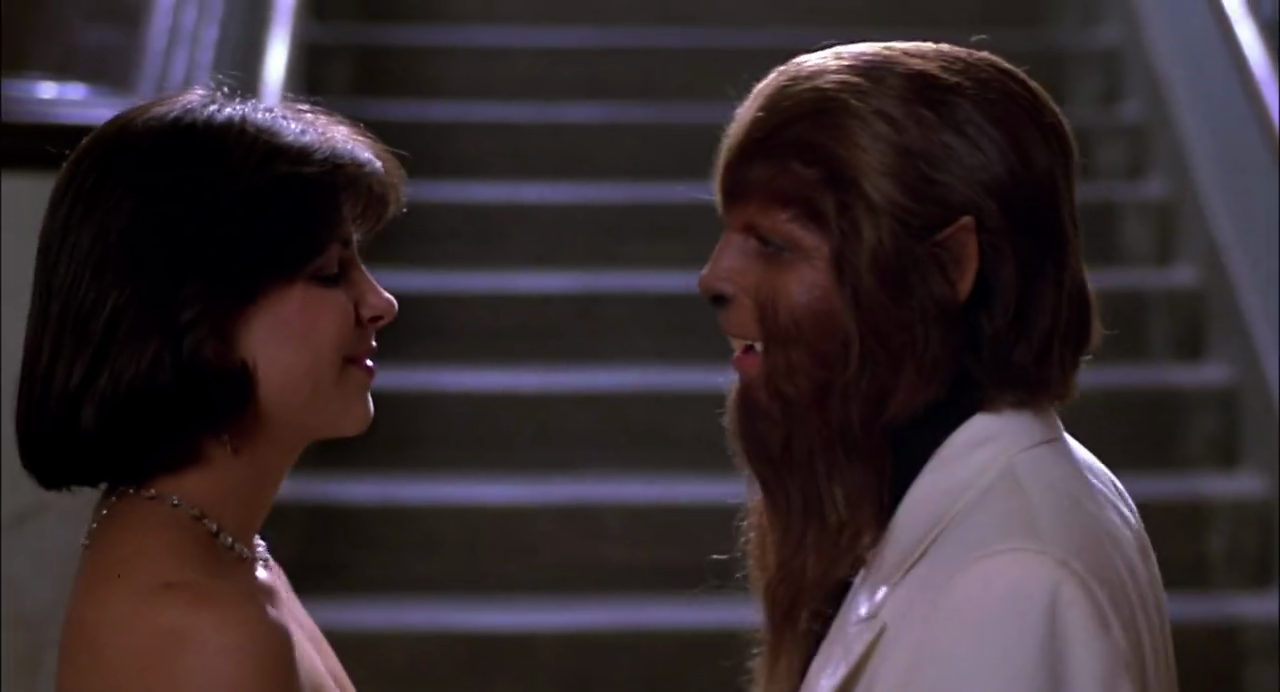
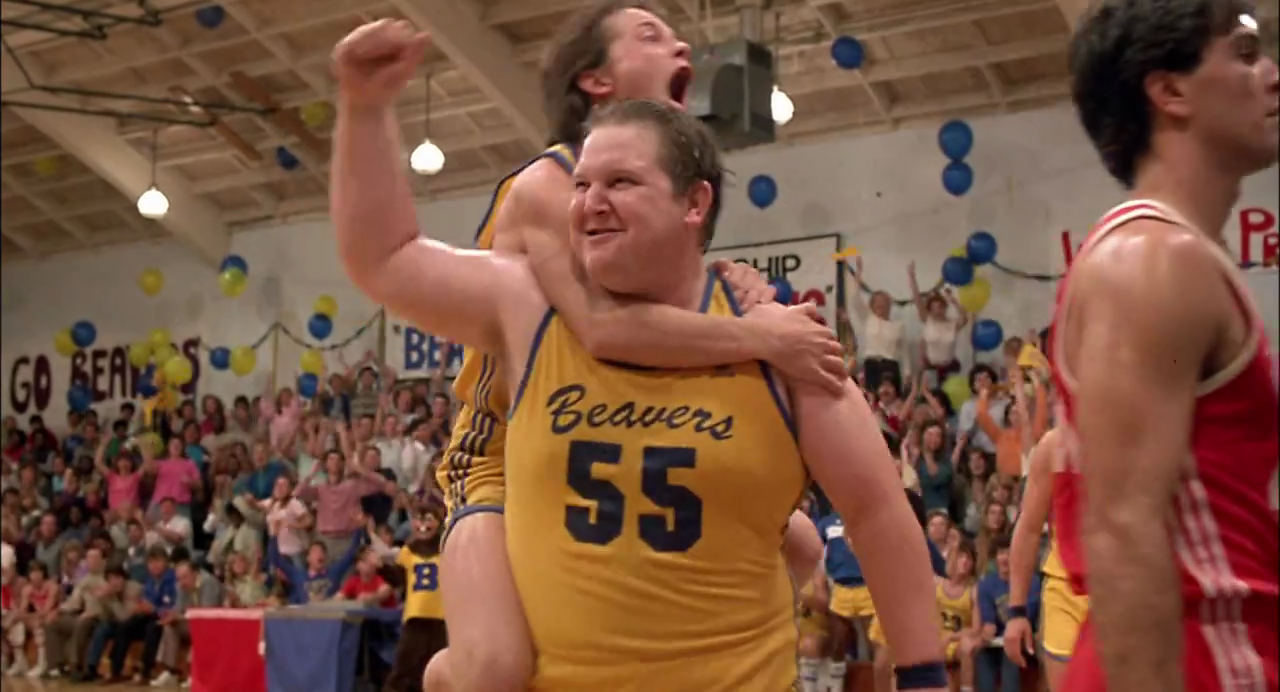
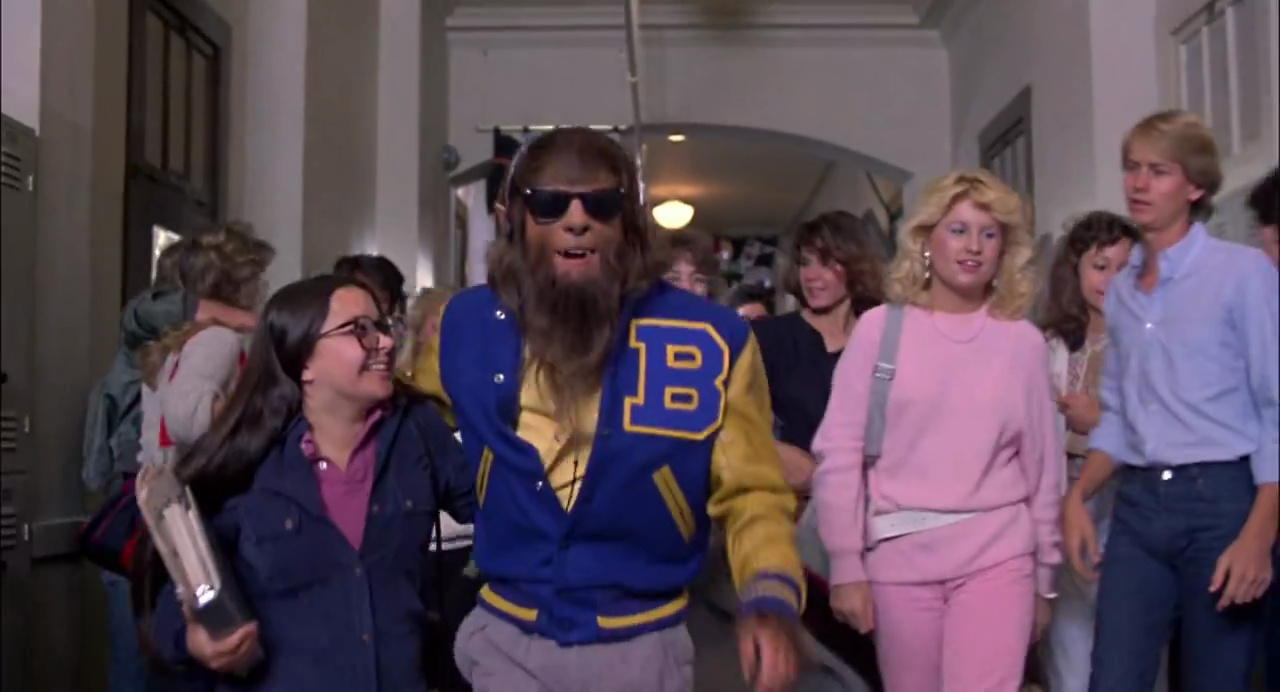
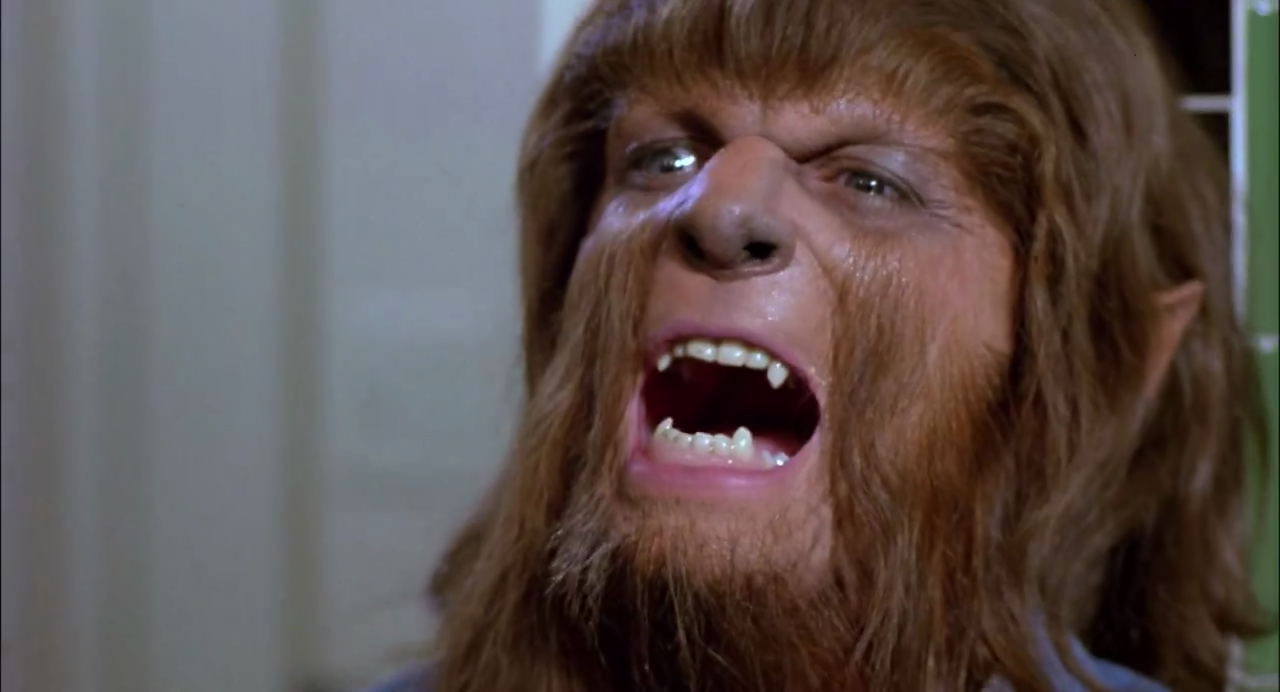
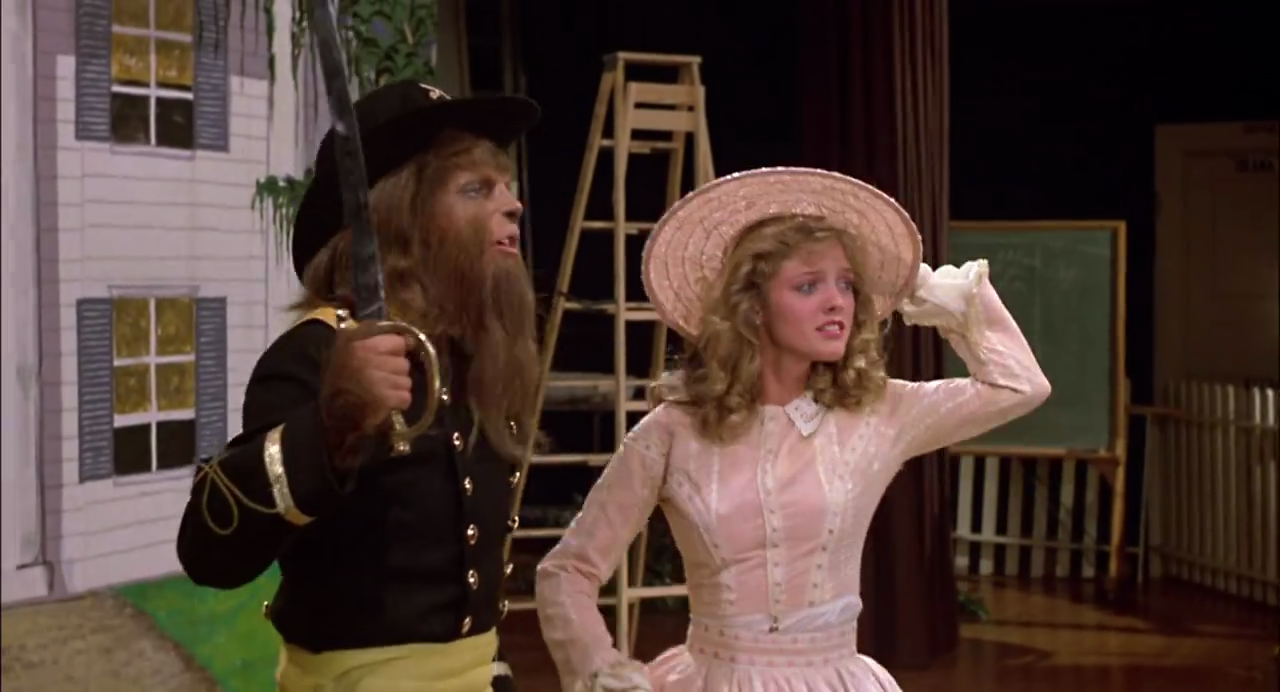
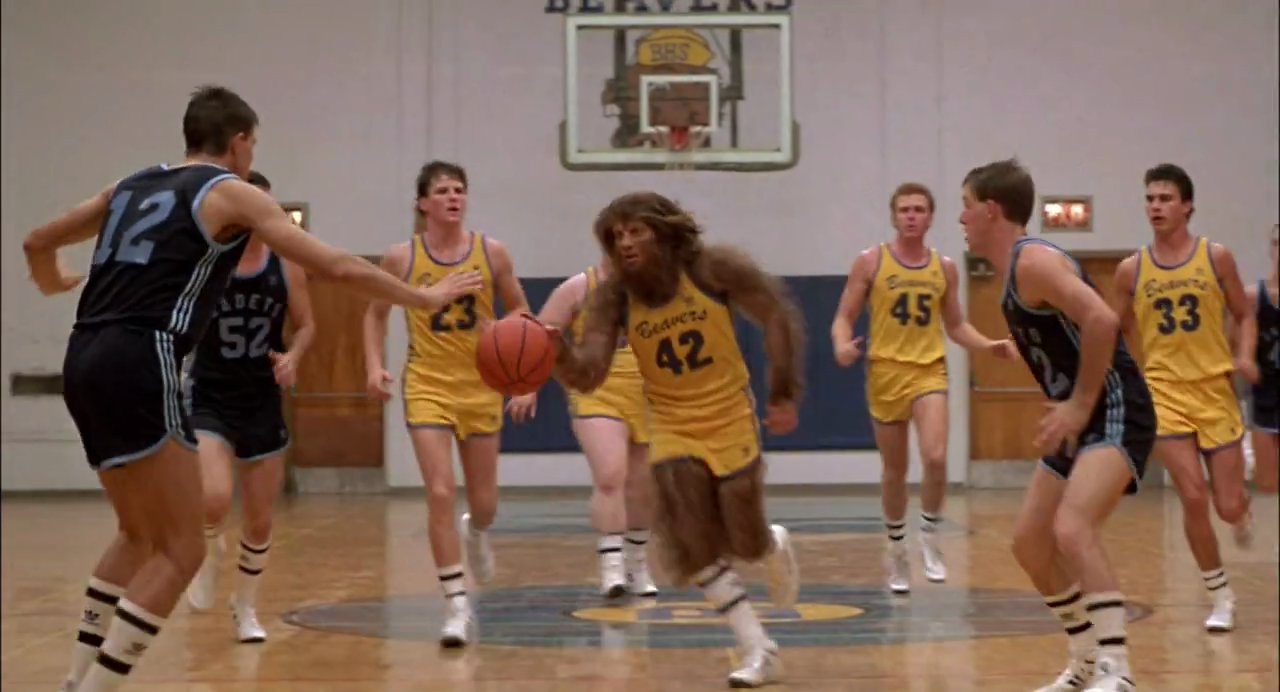
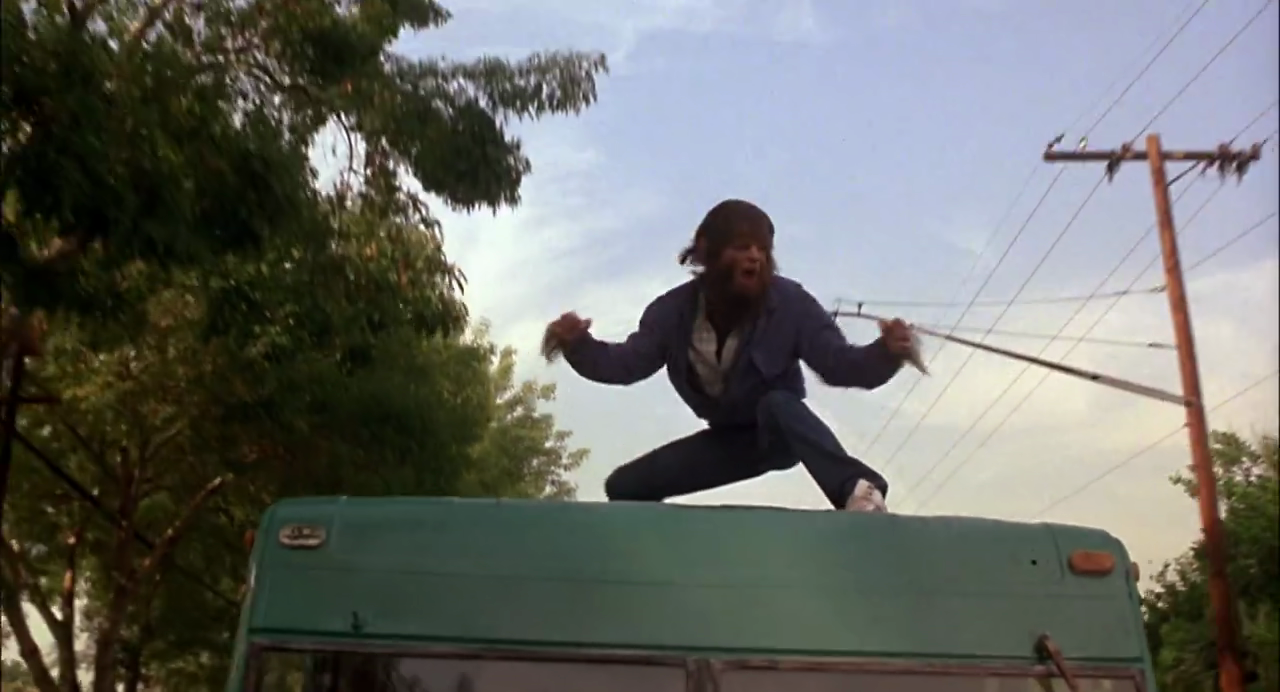

1 comment:
I love it.
Post a Comment